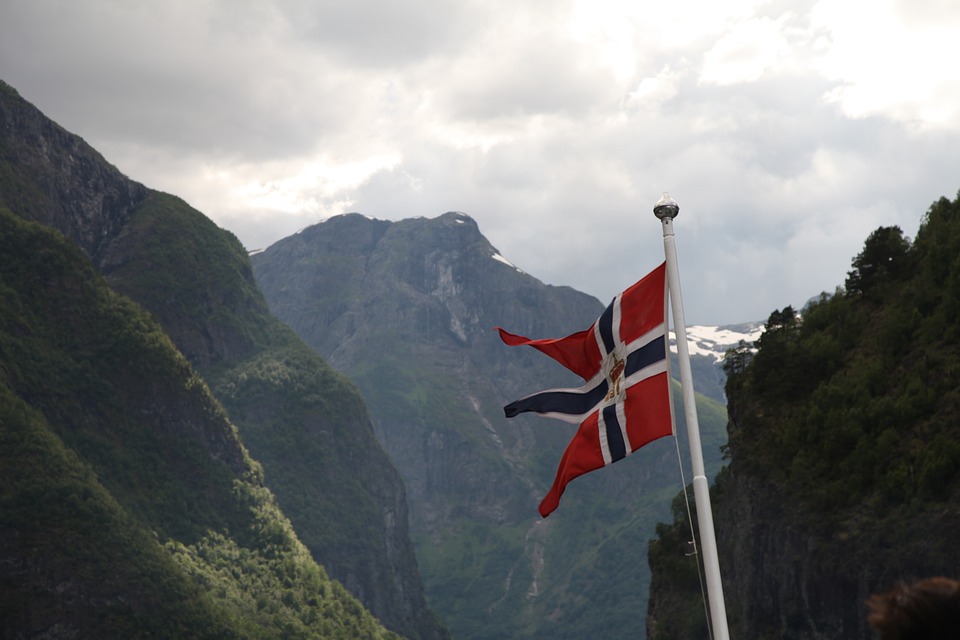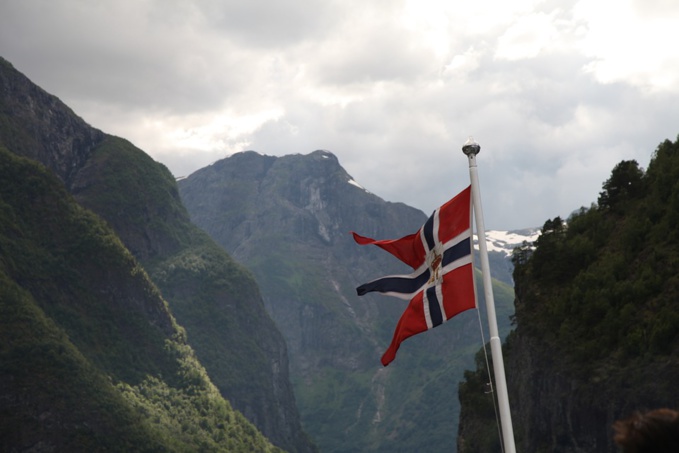The next government will have less opportunity to rely on the sovereign wealth fund of $ 980 billion, which is the largest in the world, to support the economy after tightening fiscal rules. According to the rule, expenditures should be limited to 3% of the fund. When the Krone grows, investment abroad becomes smaller, which reduces the amount of cash for politicians.
Chairman of the Labor Party, Jonas Gahr Støre, understands this situation. He leads the polls and is ready to shift the coalition led by the conservative, as the largest oil producer in Western Europe is approaching the September 11 elections.
"It seems that this will become a problem for those who will have to unite future budgets," said Støre in an interview on Wednesday in Oslo.
The 56-year-old politician criticized the current government for its record high costs, noting $ 980 billion withdrawn from the welfare fund for the first time.
The Labor Party wants to return part of the state's 22.4 billion kroner ($ 2.8 billion) from tax cuts, in part with help of an increase in welfare taxes. The party intends to adhere to the budget rules that limit the cost of oil production. But, given the growth of the fund over the years, even compliance with the rules has resulted in expenditure of more than 7% of GDP.
"It's surprising that Norway is the only country in Europe where the opposition suggests spending less money. In four years, this government spent more oil revenues than in the previous twelve years. This has limited fiscal freedom for the next government," said Støre.
Of course, the government began to use the fund to deal with the biggest crisis in its oil industry in the period after the fall in oil prices. Prime Minister Erna Solberg also said that the stimulus now needs to be reduced, as the economy is recovering.
Criticizing the government of Solberg for excessive costs, Støre stated that it is necessary to maintain flexibility in the matter of expenditure. You can increase spending in "bad times" and cut costs in "good times," he said. But control over the management of cash money is a responsible business, he believes. According to him, the government has reached the limit of the possible.
It is worth noting that the Central Bank of Norway also stated about the risks of embezzlement of the fund's resources at the beginning of the year. According to Head of the central bank Øystein Olsen, about 50% of the capital of the National Welfare Fund of Norway will be spent in the next 10 years.
He expressed concern over the growing costs of funds derived from oil revenues and added that it is necessary to protect $ 890 billion of assets of the world's largest sovereign wealth fund.
"Against the backdrop of the growth in spending on oil revenues, there is a risk of a decline in the fund's capital, which could happen if the global recession turns into a fall in oil revenues and low or negative return on the fund's capital," he said.
This year, government withdrawals from the fund could grow by 25%, after the government was first forced to use the fund in 2016 to cover budget needs and protect the economy.
Yield of the state pension fund of Norway in 2016 was 6.9%, while in 2015 the figure was 2.7%, an investor in the Norwegian capital Oslo said. The yield on shares in 2016 was at the level of 8.7%, on bonds - at the level of 4.3%, and investment in real estate grew by 0.8%.
The fund has showed profitability for the fifth year in a row, benefiting from the rally in the capital markets during the fourth quarter of 2016, which compensated for the drop in bond yields. Stock markets rose sharply after Donald Trump’s unexpected victory in the US elections.
State Pension Fund of Norway owns shares of 9 thousand companies around the world. The largest share in the portfolio is made up of Nestle, Apple and Royal Dutch Shell. The most significant investments in government bonds fall to the share of the US, Japan and Germany. In total, the fund invested in 77 states in the world.
source: bloomberg.com
Chairman of the Labor Party, Jonas Gahr Støre, understands this situation. He leads the polls and is ready to shift the coalition led by the conservative, as the largest oil producer in Western Europe is approaching the September 11 elections.
"It seems that this will become a problem for those who will have to unite future budgets," said Støre in an interview on Wednesday in Oslo.
The 56-year-old politician criticized the current government for its record high costs, noting $ 980 billion withdrawn from the welfare fund for the first time.
The Labor Party wants to return part of the state's 22.4 billion kroner ($ 2.8 billion) from tax cuts, in part with help of an increase in welfare taxes. The party intends to adhere to the budget rules that limit the cost of oil production. But, given the growth of the fund over the years, even compliance with the rules has resulted in expenditure of more than 7% of GDP.
"It's surprising that Norway is the only country in Europe where the opposition suggests spending less money. In four years, this government spent more oil revenues than in the previous twelve years. This has limited fiscal freedom for the next government," said Støre.
Of course, the government began to use the fund to deal with the biggest crisis in its oil industry in the period after the fall in oil prices. Prime Minister Erna Solberg also said that the stimulus now needs to be reduced, as the economy is recovering.
Criticizing the government of Solberg for excessive costs, Støre stated that it is necessary to maintain flexibility in the matter of expenditure. You can increase spending in "bad times" and cut costs in "good times," he said. But control over the management of cash money is a responsible business, he believes. According to him, the government has reached the limit of the possible.
It is worth noting that the Central Bank of Norway also stated about the risks of embezzlement of the fund's resources at the beginning of the year. According to Head of the central bank Øystein Olsen, about 50% of the capital of the National Welfare Fund of Norway will be spent in the next 10 years.
He expressed concern over the growing costs of funds derived from oil revenues and added that it is necessary to protect $ 890 billion of assets of the world's largest sovereign wealth fund.
"Against the backdrop of the growth in spending on oil revenues, there is a risk of a decline in the fund's capital, which could happen if the global recession turns into a fall in oil revenues and low or negative return on the fund's capital," he said.
This year, government withdrawals from the fund could grow by 25%, after the government was first forced to use the fund in 2016 to cover budget needs and protect the economy.
Yield of the state pension fund of Norway in 2016 was 6.9%, while in 2015 the figure was 2.7%, an investor in the Norwegian capital Oslo said. The yield on shares in 2016 was at the level of 8.7%, on bonds - at the level of 4.3%, and investment in real estate grew by 0.8%.
The fund has showed profitability for the fifth year in a row, benefiting from the rally in the capital markets during the fourth quarter of 2016, which compensated for the drop in bond yields. Stock markets rose sharply after Donald Trump’s unexpected victory in the US elections.
State Pension Fund of Norway owns shares of 9 thousand companies around the world. The largest share in the portfolio is made up of Nestle, Apple and Royal Dutch Shell. The most significant investments in government bonds fall to the share of the US, Japan and Germany. In total, the fund invested in 77 states in the world.
source: bloomberg.com



















